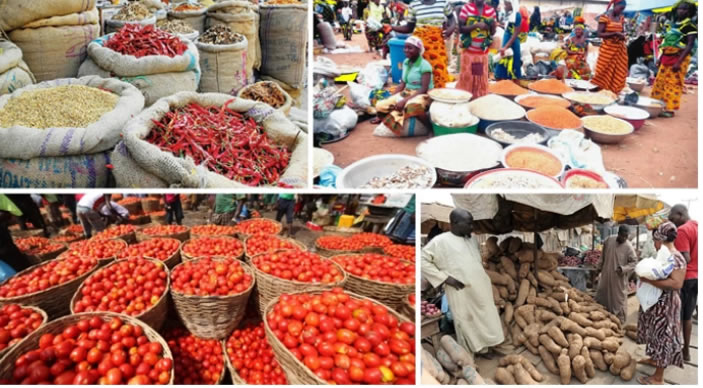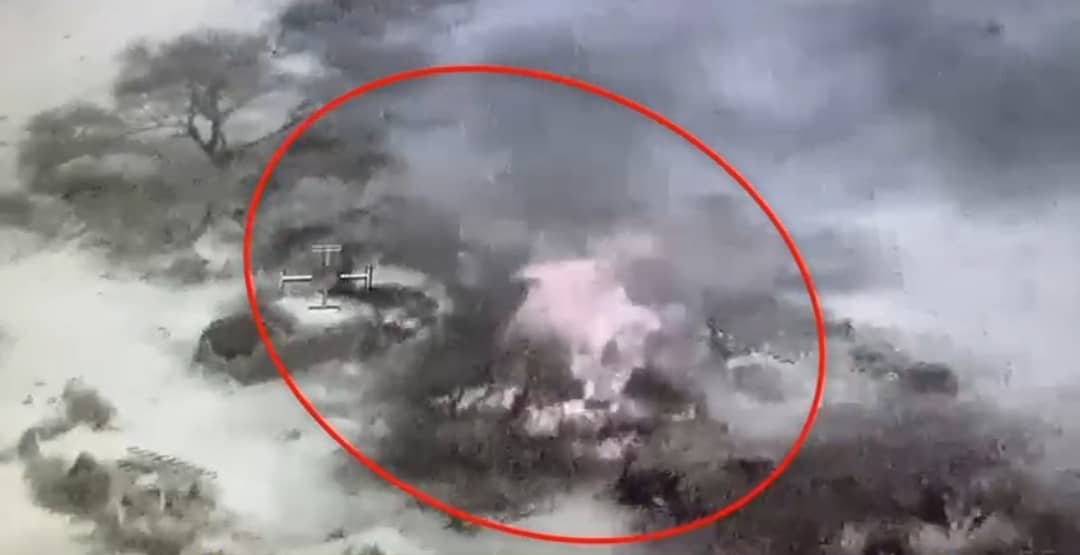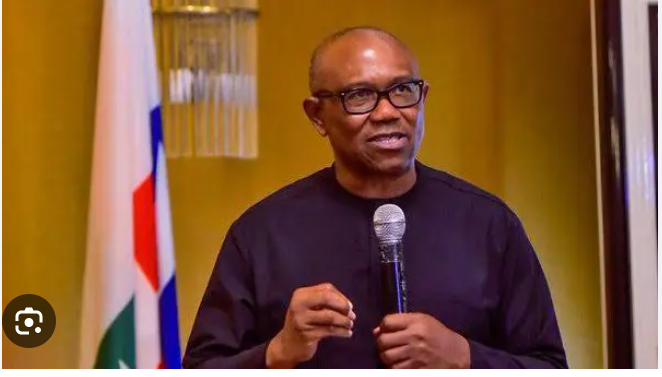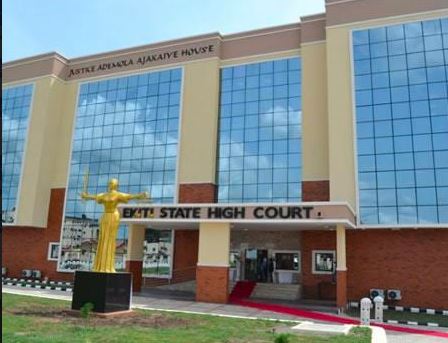Prices of essential food items have gone up by at least 30 per cent between December and April in at least eight states, according to surveys by our correspondents.
The development has made consumers groan, saying the hikes in the prices of goods have affected their budgets.
Prices of food items have continued to soar across the country despite the recent rebound of the naira.
This came as President Bola Tinubu recently vowed to ensure a rebound of the local currency reflected in the prices of commodities.
As a follow-up to the President’s decision, operatives of the Federal Competition and Consumer Protection Commission last week raided some Abuja supermarkets over unfair pricing, vowing to extend the clampdown to other states.
However, the latest findings by our correspondents showed that the prices of basic food items like beans, and garri had risen by at least 30 per cent.
The surveys were conducted in Lagos, Ogun, Gombe, Kwara, Sokoto, Ekiti, Osun and Niger states.
In the past few months, the prices of major food items have continued to rise, especially after Tinubu removed the petrol subsidy and devalued the naira. As the country’s inflationary pressure deepens, Nigerians have been finding it difficult to put food on their tables. This became aggravated when the naira fell sharply against the dollar and other foreign currencies like the CFA between February and March.
As the naira appreciated in the foreign exchange market lately, there were high expectations that the prices of food items, which went up alongside the dollar, would also follow a downward trend in the market. However, findings by our correspondents confirmed that only the prices of rice had so far reduced.
As of Wednesday, findings showed that the prices of beans, garri and other food items remained high despite the naira appreciation.
Our correspondents who visited various markets in some states gathered that traders and sellers were lamenting over the high cost of food items; though the prices differ depending on the location.
According to the surveys, a bag of garri now sells at N41,000, up from N37,000 in less than two weeks ago. In January, it was around N31,000. This indicates a 31 per cent increase.
Similarly, a bag of one kilogramme of Semovota which went for N700 in December now goes for N1,400. This represents a 100 per cent increase in the price. Also, one kilogramme of wheat which went for N500 in December is now being sold for N1,200. This indicates a 140 per cent hike.
Also, findings showed that in January, a bag of beans went for between N65,000 and N70,000. However, as of Wednesday, a bag of beans went for N185,000. This indicates a 164 per cent increase.
The development means that the least increase recorded in the category of basic and essential food items is 31 per cent; this was seen in the price of garri.
Consumers groan
The situation has made consumers in various parts of the country lament the hardships caused by the price hikes.
Speaking to The PUNCH, a resident of Isolo, Mr Rafiu Adedoja, complained that the price of a wrap of his favourite meal, amala, had increased.
According to him, due to the nature of his work as a bricklayer, he eats daily at a popular canteen. He lamented that he used to buy a wrap of amala for N100 but now he buys at N200, noting that the portion has become smaller.
He noted that he now buys at least five wraps which is N1,000, excluding the meat which brings the cost of his meal to between N1,600 and N2,000 which is not economical for him given the present state of the economy where jobs come in trickles.
Also speaking to our correspondent, a mother of four, who is a hairdresser in the Okota area of Lagos, Mrs Bola Adekunle, decried that the majority of the food items in the market especially garri, beans, groundnut oil, and even yam had increased which was affecting so many people especially low-income earners like her with children to feed.
She told our correspondent that food prices were becoming unbearable and getting worse daily.
“We eat once a day now, but if I record higher sales, we can eat twice. In the last two months, I can’t remember the last time that my family ate three square meals,” Adekunle moaned.
An industrial chemist, Mr. Harrison Chinaka, said, “It is very obvious that there has been a continuous and rapid hike in the prices of goods in the market. I mean every foodstuff in the market; the prices are increasing almost every hour
“You find out that what you bought in the morning by the time you get there in the afternoon or evening, they will tell you that the price has changed. I bought a paint of garri not up to two weeks ago for about N2, 900 and three days after I went to buy the same quantity of garri and I was told it now goes for N3,500
“The same thing applies to bread and provisions, the prices of everything are increasing and it is not as if salaries are being increased and it is becoming difficult for an average Nigerian to cope especially someone with a family. The person has to pay school fees, house rent and continuously pay bills, it is becoming difficult to survive here in Nigeria,” he said.
Also speaking, Mr. Prosper Dike, said, “As for me what I will say is that the prices of commodities now are no longer the same as it is used to be before. For instance, a bag of rice has gone higher than what it used to be. How do you expect us with our source of income that has not increased, how do we meet up considering the way things are going?”
Pointing out that the price of the dollar had depreciated to the naira in recent times, a factor that lots of traders blame for the hike in food prices, Dike wondered why prices of food are yet to reduce.
“If there is anything the government can do to help because the situation is choking, the cost of living now is not easy. People can’t afford three square meals a day again because things have gone up. Even though the dollar has come down things are yet to come down,” he lamented.
A businesswoman, Tomisin Sunday, lamented that the hikes in the prices of foodstuffs had remained leading her to reduce the quantity of food she buys during her weekly grocery shopping.
Sunday, who shops at the popular Iyana-Iba market along the Lagos-Badagry Expressway said that as of Wednesday, the prices of tomatoes had come down to N2,400 for a custard bucket but that pepper was still so expensive.
“The price of ginger has refused to come down though. It was N11,000 today. Last week, it was N13,000. I use it for my Zobo drink, which I sell. At this rate, I may be unable to keep selling at the current price that my customers are used to.
“As for foodstuffs, I come to the market fairly regularly because things are too expensive and my money is not usually enough. At this point, I’m doing business just to be able to feed my family.
A tailor, Udeme Nicholas, was so frustrated by the situation that he lamented, “It feels almost as if my village people are following me. I get plenty of jobs and my rates are not cheap, so I get well paid for my services but when I calculate how much I spend on food alone every week for my three children, wife and myself, it gets me depressed.
“If my wife had been the one going to the market, maybe, I would have suspected she was cheating me but you see, I go to the market and it is not funny. I have got kids under five years of age, I can’t be denying them basic nutrition but the situation is getting worse.”
Contacted, the South-West spokesperson for the National Association of Pensioners, Olusegun Abatan, decried the upward movement of food prices, saying that no serious government would watch its senior citizens suffer.
While expressing disappointment, Abatan recalled Tinubu’s promise to give pensioners a N25,000 palliative to cushion the effect of the current economic crisis, he claimed that no pensioner had received the promised funds.
He further blamed the current economic crisis on the President’s announcement of the removal of the fuel subsidy at his inauguration.
He said, “The root cause of this hardship can be traced to the statement of President Bola Tinubu, on his inauguration day. A more careful statement should have been uttered rather than that ‘Subsidy is now gone’.
“It is not only food that is on the high side, even drugs cannot be got easily by pensioners and even by those who are sick since the price is skyrocketing and this was because of that president’s singular statement. That statement is not well thought out.”
Abatan added, “The President declared that he was going to give N25,000 to pensioners as palliatives but till now we have not yet got any kobo. This has led to disappointment on the part of our members.
“This is the rainy season, what efforts are they putting in place to ensure that farmers can do their jobs without fear of being killed or kidnapped? We can only appeal to the government to wade in and be more serious in their actions towards ensuring that food prices crash.”
Prices rise
In Ogun State, the price of one bag of beans has continued to soar alongside that of garri, according to traders. A foodstuffs vendor in Ikenne, Ogun State, Friday Kingsley, told our correspondent that one bag of beans which used to be around N70,000 in January, had since risen to N185,000. This indicates a 164 per cent hike.
Kingsley added that a bag of garri now sells at N41,000, up from N37,000 in less than two weeks ago.. In January, he said it was around 31,000 in January.
“The price garri is going higher by the day. I bought one bag of garri at the rate of N37,000 in Siun Market 10 days ago, but the same bag sold for N45,000 yesterday. We don’t know why garri is not coming down.
“In January, I used to buy a bag of beans around N65,000, N70,000; but today, I bought the same bag at N185,000. I couldn’t even pay in full. I’m afraid it may get to N200,000. The rise in the prices of beans and garri is very disturbing,” Kingsley said.
Also, a trader in Sagamu, who identified herself as Ashake disclosed to our correspondent that 1kg of Semo rose from N700 in December to N1,400 as of Wednesday. According to her, the price of 1kg of wheat used to be N500 in December, but it now sells for N1,200. In Abeokuta, bread sellers complained of price hikes, as the smallest loaf of bread rose from N150 in October 2023 to N300 or N400.
In the same vein, traders told our correspondent in Ibafo that a bag of sachet water now sells at the rate of N400, while retailers sell one or two sachets for N50, depending on the location and the seller. But there seems to be a glimmer of hope as Mr Success, who sells food items in Iperu, disclosed that a carton of Indomitable noodles has dropped from N12,000 in February to around N7,000 as of Wednesday. Findings at Oba Lipede market in Kuto, Abeokuta revealed that a yam tuber goes for between N2,800 and N3,000.
A retired civil servant, Mrs Titi Alabi, said that it was tough feeding the family with the way the prices of foodstuffs have continued to skyrocket.
Alabi said that the palliatives from the government were a far cry from the challenges Nigerians currently grapple with, particularly with the escalating prices of food.
“We just have to go back to farming. Government at all levels must increase its investment in agriculture, we must look for how to boost food production,” she stated.
Similarly in Lagos, food items like pepper, spaghetti, onions and oil maintained high prices amid naira rebound. Traders in Oshodi and Agege markets in Lagos State said the food prices went up between January and April and have refused to backtrack.
Speaking with our correspondent, a pepper seller in Agege, who was identified simply as Mrs Kareem, noted that in October, a big basket of pepper was sold between N60,000 to N74,000, expressing worries that the same size is now sold for N103,000. She added that a basket of tomatoes was sold for N35,000 mid-last year, but it is now sold for N65,000. Kareem further stated that a bag of onions rose from N30,000 to N60,000 in January, saying it has reduced to N47,000 as of Monday.
At the Ikotun Market in Alimosho Local Government Area of Lagos State, The PUNCH observed that a derica of beans which was sold earlier in the year at N750, now sells for N1,200. Giving details of the prices, a trader, Chidera Madu, said, “Half Derica of beans was sold for N600 before, but now it is N1,200; a small portion of pepper was N100, but it is now N200 upwards. Five litres of palm oil used to be N5,000, but now it is N8,000. One medium loaf of bread was sold for N850 in December, but it is now N1,300”. She lamented that despite the drop in the value of the naira against the naira, the prices of daily consumables remained high.
A foodstuffs vendor around Idimu, Lagos, Christian Igwe, admitted there was a drop in the prices of noodles, saying the cartoon of a brand of noodles, which sold for N9,000 some weeks ago now sells for N6,000. Igwe argued that one should not expect traders who bought goods when they were highly expensive to sell them at a loss; saying they would have to exhaust the old stock.
Expressing concern over the cost of food in Lagos, wholesale food seller in Isolo Market, Mr Idris Adebowale, explained that tubers of yam are still expensive because this is the off-season for planting. According to him, a tuber of yam, depending on its size, now sells between N2,500 and N3,000, up from N1500 some weeks ago.
Across major markets in Gombe metropolis, prices of food items are on a steady rise. The markets include Baban Kasuwa, Kasuwa Tumfure, Kasuwa Cross. Unlike most cities where grains are sold in derica, food items are sold in modules in these northern markets. Garri sells for N950, a container of beans sells for N1,400, an average-size tuber of yam costs N1,500, while millet is N1,200. Traders said all these prices were far above what they used to be.
In Osun State, checks in some markets within Osogbo metropolis revealed prices of many locally produced food items remained high.
At Oluode, one of the major neighborhood markets in Osogbo, a module of garri goes for N1, 200, while a bag of local rice that was sold for N50, 000 last week, currently sells for between N55,000 and N57,000.
Cost of pepper has also remained high, the situation blamed on high cost of transportation from the North where buik of the item was being brought to the state.
Sokoto markets
In Sokoto State, residents lamented the rising cost of foodstuffs continue to rise in the market. According to them, a plate of white beans now sells at the rate of N3,000 while a plate of garri which was sold for N2,200 a few weeks ago now goes for between N2,500. Millet, which is the most commonly consumed food in the state has also moved above N2,000.
It was a similar scenario in Ilorin, Kwara State, where the prices of foodstuffs continue to soar. In Baboko and Mandate markets W showed that a bag of beans was sold at N135,000 instead of N129,000 two weeks ago. A bag of guinea corn which previously sold for N52,000 was sold at N57,000, while a plastic of garri has increased from N15,000 to N17,000.
It was observed that a small bag of yam flour now costs N160,000 while a big bag sells at N280,000, indicating a sharp increase from what it was a few months ago.
The price of six average-size tubers of yam was between N8,000 while the big tubers of yam were sold at between N13,000 and N15,000. A foodstuffs dealer at Baboko market, Mrs Rodiat Mustapha said the cost of transportation is one of the factors responsible for the high cost of food.
In Niger, traders still blame the dollar for the hike in food prices. For instance, at the Thursday Market and the Kure Market, customers were seen complaining about the cost of food, but the traders said they were not to blame.
“It is not our fault. We also want the items to come down in their prices because there is low patronage. But we buy at very expensive rates too,” Hauwa said.
The PUNCH investigation revealed that a kilogramme of cow meat sells for N5,000 while chicken sells for between N6,500 and N8,000, depending on the location. It was also observed that fish has gone above the purchasing powers of the common man as one medium-sized sardine now goes for about N3,000.
At the markets in Ado Ekiti, the Ekiti State capital, the prices of food items also remain high. A measure of garri which was sold for N500 or N600 in December is now N1,200.
A trader at Oja Oba, who identified herself as Dupe, said, “A measure of beans is now N2,000. It was like N700 before the subsidy removal. We sell as we buy, we are not the problem”.
Also, a yam seller at the Okesha Market, Bimbo, explained that the prices of five tubers of yam rose from N2,500 last year to N6,000. She said the price hike applied to all commodities because of the high transport cost.
“We now sell five litres of palm oil at the rate of N6,000. It used to be N2,500 before subsidy removal. May God come to our aid,” the trader prayed.
Meanwhile, the government at the three tiers have been advised to support farmers with accountable and transparent incentives while encouraging farming by enabling farmers to secure mechanised farming tools in farm clusters.
•Additional reports: Henry Falaiye, Chima Azubuike, Animasahun Salman, Bankole Taiwo, Tunde Oyekola, Bola Bamigbola, Chika Otuchikere and Abiodun Nejo









